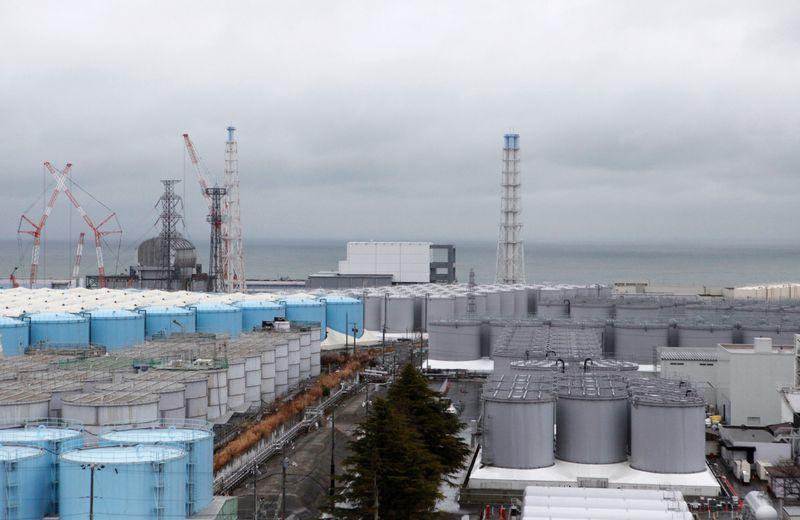Fukushima To Dump 1 Million Tons Of Radioactive Water Into Pacific
 By Tyler Durden
By Tyler Durden
Tokyo Electric Power’s Fukushima Daiichi Nuclear Power Station is expected to release more than one million tonnes of treated radioactive water from the destroyed nuclear power plant into the ocean after the 2021 Tokyo Olympic Games, according to the Asian Nikkei Review.
More than one thousand storage tanks at the Fukushima Daiichi site are lining the property and store upwards of 1.23 million tonnes of treated radioactive water. In recent years, we’ve pointed out (see: here & here) how storage tank capacity has been running out and battles fume over the prospects of releasing the tainted water.
[do_widget id=text-16]
The water in question has had radioactive isotopes removed through a complex filtration process – except for tritium. Even with existing technology, tritium cannot be removed. In large quantities, the tritium-mixed water could pose severe risks for wildlife and humans. The expected release would occur after 2022.
The decision to end several years of debate over releasing the tritium-mixed water appears to be coming to an end. But, in 2019, South Korea raised concerns to the International Atomic Energy Agency about the planned release.
Earlier this year, a Japanese government panel contemplated multiple release strategies: the first was to dump the tritium-mixed water into the ocean; the second was to allow the water to evaporate. The decision appears to be a controlled release into the Pacific Ocean.
Chief Cabinet Secretary Katsunobu Kato said Friday, without commenting directly on Fukushima’s planned release of treated radioactive water, that:
“We can’t postpone a decision on the plan to deal with the… processed water, to prevent delays in the decommission work of the Fukushima Daiichi nuclear power plant,” Kato said.
Environmental activists have not been thrilled with the upcoming release. Fishermen, farmers, and ordinary citizens have voiced concerns that releasing the tainted water could trigger an “environmental shock” and damage the surrounding ecosystem.
Nikkei notes, upon release, the tritium-mixed water would be “diluted up to about 600 times by uncontaminated water. The released water would then be well within international standards.”
Fukushima’s increasing nuclear waste dilemma was seen in 2014, when Tokyo Electric Power dumped hundreds of tonnes of radioactive water stored at the nuclear facility directly into the Pacific.
Fukushima’s nuclear waste dilemma is an eye-opener for nuclear energy being touted as a “promising form of energy production for a decarbonizing global economy,” noted Oilprice.com.
Readers may recall that Bill Gates’ nuclear power energy venture has proposed constructing miniature nuclear power stations across major metro areas to develop carbon-free electricity.
A decarbonizing global economy sounds great until the growing nuclear waste dilemma arises.
Source: Zerohedge
FREE PDF: 10 Best Books To Survive Food Shortages & Famines



